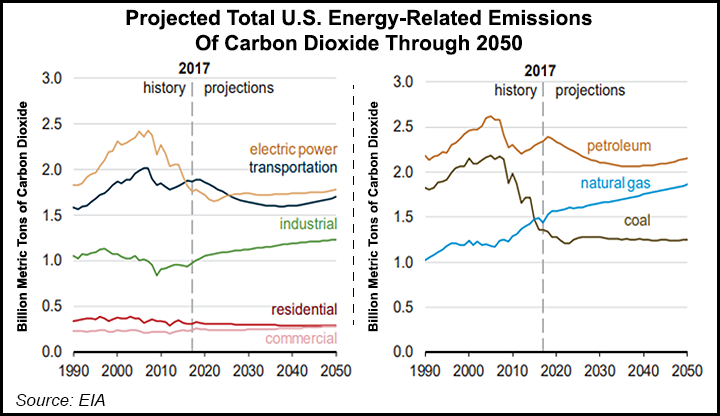Infrastructure | NGI All News Access | Regulatory
Court Urged to Reject EPA Arguments Regarding CPP Challenges
A coalition of states, cities and environmental groups urged a federal appellate court to move forward with legal challenges to the Clean Power Plan (CPP) and reject arguments by the Environmental Protection Agency (EPA) that the cases should remain on hold.

In a joint motion filed Tuesday in the U.S. Court of Appeals for the District of Columbia, the coalition, led by the State of New York and the Environmental Defense Fund, argued that continuing to hold the cases in abeyance “is prejudicial” to states, cities and the public health. The lead case is State of West Virginia et al v. EPA et al, No. 15-1363.
“This case has been in abeyance for almost one and a half years, during which time the EPA has not implemented any regulation to fulfill its mandatory duty to protect the public from dangerous air pollution,” the coalition wrote. “EPA and petitioners now ask this court to grant them even more time. This court should reject this bid and decide the live controversy before it.”
The coalition added that EPA and CPP’s foes “bear a heavy burden to persuade this court to exercise its discretion to grant further abeyance where, as here, abeyance allows the agency to delay fulfilling a mandatory duty without going through the statutory procedures and providing an adequate explanation for doing so.”
On Aug. 24, EPA filed a status report with the court and urged it to continue to hold all of the associated legal challenges to the CPP “in abeyance pending the conclusion of [a] high priority rulemaking, which the agency is committed to completing as expeditiously as practicable.” That same week, EPA proposed replacing the CPP with the Affordable Clean Energy rule (ACE), which would shift much of the responsibility for regulating carbon dioxide (CO2) emissions from power plants to states. Critics said ACE could potentially increase the use of coal in power generation.
U.S. energy-related CO2 emissions were 5.14 billion metric tons in 2017, a 0.9% decline from 2016 and 14% lower than in 2005, according to the Energy Information Administration (EIA). Consumption of both coal and natural gas declined in 2017 compared with 2016, resulting in coal- and gas-related CO2 emissions decreasing 2.6% and 1.5%, respectively, EIA said.
The Obama administration unveiled the final version of the CPP in August 2015. The plan, which embraces renewables, solar and wind power, but not so much natural gas, calls for states to reduce emissions 32% below 2005 levels by 2030. But the Trump administration targeted the CPP shortly after taking office.
© 2024 Natural Gas Intelligence. All rights reserved.
ISSN © 1532-1231 | ISSN © 2577-9877 |
